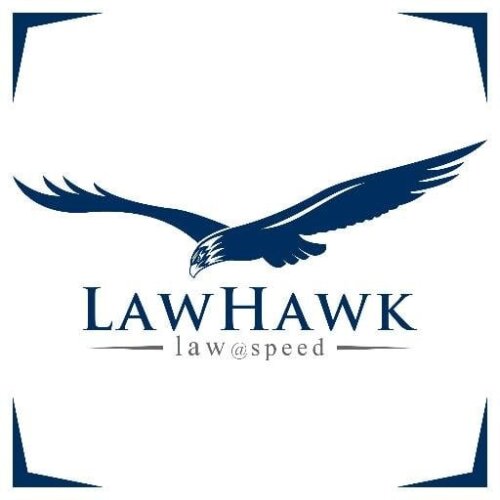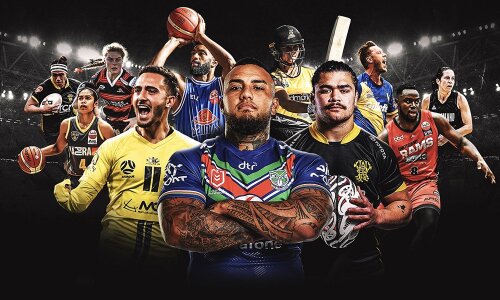Best Sports Law Lawyers in New Zealand
Share your needs with us, get contacted by law firms.
Free. Takes 2 min.
Or refine your search by selecting a city:
List of the best lawyers in New Zealand
About Sports Law in New Zealand
Sports Law in New Zealand encompasses a wide range of legal areas, including contract law, employment law, intellectual property, and dispute resolution as it applies to the sports industry. This field addresses the legal issues encountered by athletes, sports organizations, teams, and governing bodies. New Zealand, known for its rich sporting culture, has developed a comprehensive legal framework to manage and regulate the sports sector, ensuring fair play, safety, and contractual compliance. It adapts general legal principles to the specific context of sports, safeguarding both the participants and the reputation of sports as a whole.
Why You May Need a Lawyer
There are numerous situations where individuals and organizations involved in sports may require legal assistance:
- Contract Negotiations: Athletes or coaches negotiating employment contracts or sponsorship deals.
- Dispute Resolution: Resolving conflicts within teams or between athletes and organizations, often requiring mediation or arbitration.
- Intellectual Property: Issues relating to branding, merchandising, and protection of logos or trademarks.
- Doping and Ethics Violations: Cases related to breaches of doping regulations or ethical misconduct.
- Personal Injury: Legal cases resulting from injuries sustained during sporting activities.
- Regulatory Compliance: Ensuring adherence to rules set by national and international sports governing bodies.
Local Laws Overview
Sports Law in New Zealand is influenced by several key legal frameworks and statutes. Here are some relevant aspects:
- Commerce Act 1986: Governs fair trading and anti-competitive practices which can affect sports organizations.
- Employment Relations Act 2000: Applies to employment contract negotiations for players and coaches.
- New Zealand Bill of Rights Act 1990: Ensures athletes' rights are respected in cases of selection and eligibility.
- The Crimes Act 1961: Addresses criminal activities in sports, including match-fixing or fraud.
- The Sports Anti-Doping Act 2006: Establishes standards for anti-doping measures consistent with global practices.
Frequently Asked Questions
1. What is Sports Law?
Sports Law is a legal domain that addresses issues related to sports, encompassing a range of legal topics such as contracts, injury claims, intellectual property, and regulatory compliance.
2. How does contract law apply to sports?
Contract law governs agreements made within the sports industry, covering employment, sponsorship, broadcasting rights, and more, ensuring terms are legally enforceable.
3. What should I do if I'm injured in a sports event?
Seek medical attention first, then consider legal advice if the injury was due to negligence or breach of duty by another party.
4. How are doping violations handled in New Zealand?
Doping violations are regulated by Drug Free Sport New Zealand (DFSNZ), which follows procedures outlined in national and international anti-doping policies.
5. What can I do if I'm unfairly dismissed from a sports team?
You may have grounds for a personal grievance under the Employment Relations Act 2000. Consult a lawyer for potential legal remedies.
6. Is it possible to trademark a sports team logo?
Yes, team logos can be trademarked to protect intellectual property rights and prevent unauthorized use.
7. What legal support is available for resolving sports disputes?
Options include mediation, arbitration, or litigation, with the Court of Arbitration for Sport (CAS) being a major avenue for international disputes.
8. How can I protect my image rights as an athlete?
Through legal agreements, ensuring consent and compensation for the commercial use of your image or likeness.
9. Are there laws addressing match-fixing in New Zealand?
Yes, match-fixing is considered a criminal activity under New Zealand law, with severe penalties for those found guilty.
10. Who governs sports regulations in New Zealand?
Sports activities are regulated by national bodies like Sport New Zealand, along with international bodies respective to each sport, such as FIFA, World Rugby, etc.
Additional Resources
For those seeking further information or assistance in Sports Law, consider exploring the following resources:
- Sport New Zealand: The national agency responsible for supporting and guiding the sports sector in governance and policies.
- Drug Free Sport New Zealand (DFSNZ): Provides resources on anti-doping compliance and education.
- New Zealand Law Society: A source for legal professionals and resources across various fields, including Sports Law.
- The Court of Arbitration for Sport: For international sports dispute resolution.
Next Steps
If you require legal assistance in the field of Sports Law, consider taking the following steps:
- Identify Your Needs: Clearly define the legal issue or advice you require.
- Seek Professional Counsel: Contact a lawyer specializing in Sports Law to discuss your case.
- Prepare Documentation: Gather any relevant documents, contracts, or correspondence pertinent to your situation.
- Consider All Options: Be open to various dispute resolution methods, including mediation and arbitration, which may be more suitable than litigation.
By following these steps, you can ensure that you are well-prepared to navigate the complexities of Sports Law in New Zealand.
Lawzana helps you find the best lawyers and law firms in New Zealand through a curated and pre-screened list of qualified legal professionals. Our platform offers rankings and detailed profiles of attorneys and law firms, allowing you to compare based on practice areas, including Sports Law, experience, and client feedback.
Each profile includes a description of the firm's areas of practice, client reviews, team members and partners, year of establishment, spoken languages, office locations, contact information, social media presence, and any published articles or resources. Most firms on our platform speak English and are experienced in both local and international legal matters.
Get a quote from top-rated law firms in New Zealand — quickly, securely, and without unnecessary hassle.
Disclaimer:
The information provided on this page is for general informational purposes only and does not constitute legal advice. While we strive to ensure the accuracy and relevance of the content, legal information may change over time, and interpretations of the law can vary. You should always consult with a qualified legal professional for advice specific to your situation.
We disclaim all liability for actions taken or not taken based on the content of this page. If you believe any information is incorrect or outdated, please contact us, and we will review and update it where appropriate.
Browse sports law law firms by city in New Zealand
Refine your search by selecting a city.









